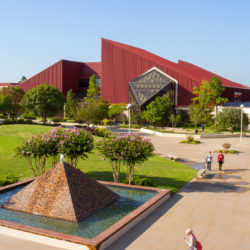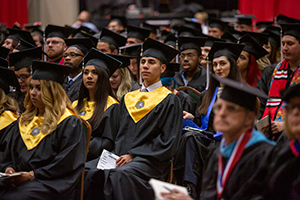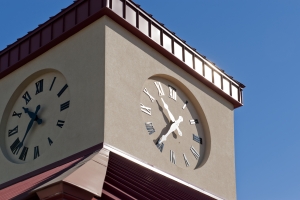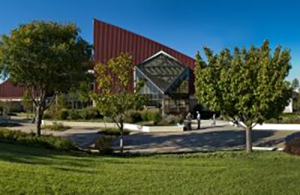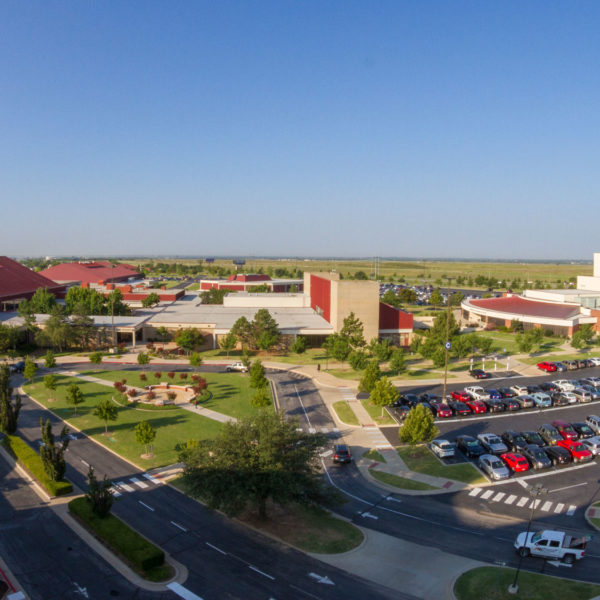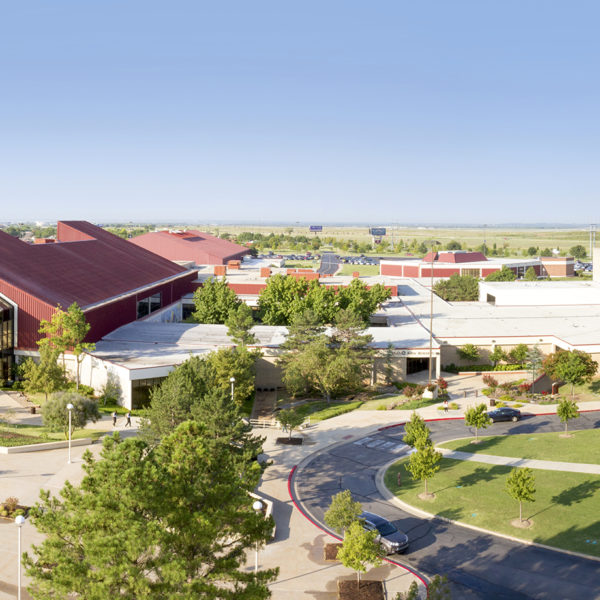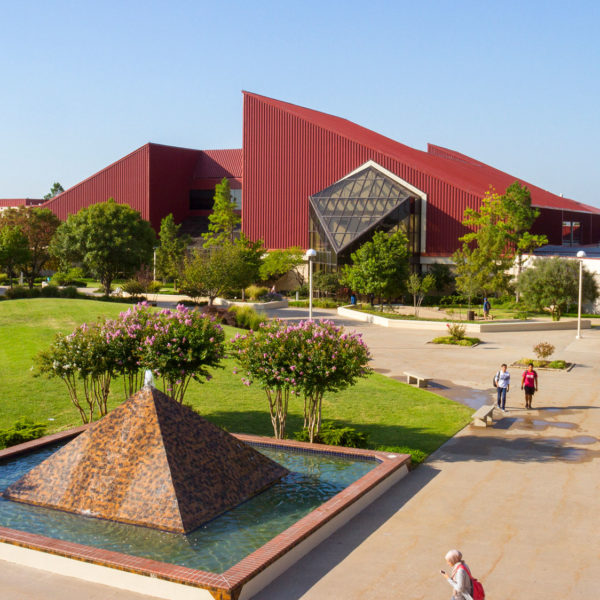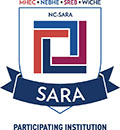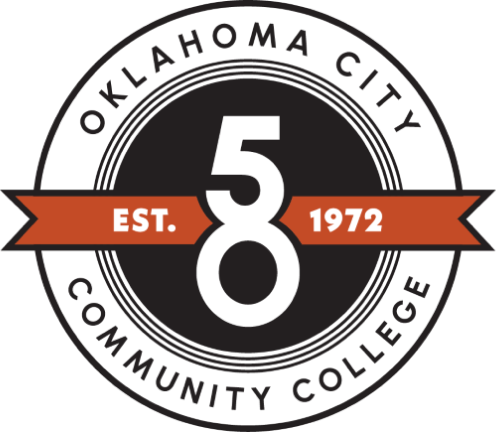| Term 1 |
| ENGL 1113 | English Composition I | 3 | Gen Ed | |
| The student will write well-developed compositions which demonstrate the principles of unity, coherence, and organization and which contain specific details and vivid language. The students will locate library material and incorporate researched materials into compositions.Prerequisites: ENGL 0203, adequate placement score, or by meeting determined placement measures
|
| MATH 1483 | Functions and Modeling | OR | Gen Ed | C |
| The student will demonstrate: an understanding of the general concepts of relation and function and
specifically of polynomial, rational, exponential and logarithmic functions; the ability to solve systems of
equations by utilizing matrices and determinants; and, the ability to solve practical problems using
algebraic and digital techniques. Prerequisites: MATH 0313 or adequate math placement; ENGL 0203, adequate placement score, or by meeting determined placement measures
|
| MATH 1613 | Trigonometry | OR | Gen Ed | |
| The student will evaluate trigonometric functions and their inverses using both degree and radian measure; graph trigonometric functions and their transformations; identify properties of trigonometric functions; verify and apply trigonometric identities; solve trigonometric equations; solve problems involving right and oblique triangles, vectors, and indirect measurement; and identify and graph polar curves.Prerequisites: Pre or Corequisite: MATH 1483 or MATH 1533 or adequate math placement and ENGL 0203, adequate placement score, or by meeting determined placement measures
|
| MATH 1743 | Calculus I for Business, Life Sciences, and Social Sciences | OR | Gen Ed | |
| This is the first of a two-semester sequence in elementary calculus in which students use the concepts of differential and integral calculus to solve theoretical and applied problems in business, life sciences, and social sciences.Prerequisites: MATH 1483 or adequate math placement
|
| MATH 2013 | Introduction to Statistics | 3 | Gen Ed | |
| The student will solve problems applying the concepts of random sampling, elementary probability, testing hypotheses, descriptive measures, chi-square, regression and correlation, and analysis of variance.Prerequisites: MATH 0313 or adequate math placement; ENGL 0203, adequate placement score, or by meeting determined placement measures
|
| Term 2 |
| SCL 1001 | Success in College and Life | 1 | Life Skills | |
| Students will learn best practices for academic, career, and personal success. Students will discover their individual strengths, interests, and values to create a personalized plan; select and utilize resources that are applicable to their growth and success; and engage as active and responsible members of the academic community. This course should be taken during a student’s first semester of college work at Oklahoma City Community College and is a required course in degree plans to satisfy the Life Skills requirement.Prerequisites: ENGL 0106 or adequate reading/writing assessment scores
|
| CHEM 1115 | General Chemistry I | 5 | Gen Ed | C |
| This course is designed for science and engineering majors. The course covers nomenclature, atomic and molecular structure, stoichiometry, acid/base and other aqueous reactions, states of matter, phase changes, gas laws, and an introduction to thermochemistry. Laboratory experience is an integral part of the course.Prerequisites: ENGL 0203, adequate placement score, or by meeting determined placement measures; MATH 1483 or MATH 1533, or both MATH 0313 and High School Chemistry or CHEM 1123.
|
| Term 3 |
| CHEM 1215 | General Chemistry II | 5 | Major | C |
| This course is a continuation of CHEM 1115 with emphasis on thermochemistry, intermolecular forces, properties of solutions, acid/base properties, kinetics, equilibrium, thermodynamics, electrochemistry, and organic chemistry. Laboratory is an integral part of the course.Prerequisites: CHEM 1115 with a grade of “C” or better; MATH 1483 or MATH 1533 with a grade of “C” or better.
|
| MATH 1483 | Functions and Modeling | OR | Gen Ed | C |
| The student will demonstrate: an understanding of the general concepts of relation and function and
specifically of polynomial, rational, exponential and logarithmic functions; the ability to solve systems of
equations by utilizing matrices and determinants; and, the ability to solve practical problems using
algebraic and digital techniques. Prerequisites: MATH 0313 or adequate math placement; ENGL 0203, adequate placement score, or by meeting determined placement measures
|
| MATH 1613 | Trigonometry | OR | Gen Ed | |
| The student will evaluate trigonometric functions and their inverses using both degree and radian measure; graph trigonometric functions and their transformations; identify properties of trigonometric functions; verify and apply trigonometric identities; solve trigonometric equations; solve problems involving right and oblique triangles, vectors, and indirect measurement; and identify and graph polar curves.Prerequisites: Pre or Corequisite: MATH 1483 or MATH 1533 or adequate math placement and ENGL 0203, adequate placement score, or by meeting determined placement measures
|
| MATH 1743 | Calculus I for Business, Life Sciences, and Social Sciences | OR | Gen Ed | |
| This is the first of a two-semester sequence in elementary calculus in which students use the concepts of differential and integral calculus to solve theoretical and applied problems in business, life sciences, and social sciences.Prerequisites: MATH 1483 or adequate math placement
|
| MATH 2013 | Introduction to Statistics | 3 | Gen Ed | |
| The student will solve problems applying the concepts of random sampling, elementary probability, testing hypotheses, descriptive measures, chi-square, regression and correlation, and analysis of variance.Prerequisites: MATH 0313 or adequate math placement; ENGL 0203, adequate placement score, or by meeting determined placement measures
|
| Term 4 |
| BIO 1124 | General Biology I (Majors) | 4 | Gen Ed | |
| An introductory course required for all biological science majors and pre-health profession students. The fundamental principles of biology are described using a cellular approach. Students gain knowledge regarding the chemical basis of life, structural characteristics of cells to include a discussion of energetics, metabolism and genetics. Evolution and ecology are also discussed in order to provide an understanding of both the diversity of living organisms and the living world. Students recognize, discuss and correctly apply fundamental biological principles influencing their personal relationship with other life forms. A discussion of the scientific method, logical (deductive) reasoning, hypothesis testing and some common fallacies and misconceptions that cloud scientific explanations of the natural world are included. Laboratory work, an integral and required part of the course, will enhance the student’s understanding of fundamental biological concepts as well as scientific procedures, laboratory technical skills, dissection and statistical analysis.Prerequisites: ENGL 0203 or adequate placement score or by meeting determined placement measures; MATH 0313 or adequate math placement.
|
| ENGL 1213 | English Composition II | 3 | Gen Ed | |
| In this advanced writing course, students will create essays that explore and evaluate a variety of issues and perspectives suggested by fiction, poetry, drama, essays, and other types of cultural texts. Students will refine and augment the writing techniques they learned in ENGL 1113 or ENGL 1103 to develop well- reasoned, well-structured arguments in a clear, fluid, and engaging prose style.Prerequisites: ENGL 1103 or ENGL 1113 taken within the last year, with strong encouragement for immediate continuation.
|
| Term 5 |
| PHYS 1114 | College Physics I | 4 | Gen Ed | |
| Students will demonstrate their understanding of useful concepts of kinematics and dynamics, energy and momentum, waves and sound, fluids and thermodynamics by (1) developing numerical and graphical descriptions of physical phenomena, (2) numerically predicting the results of physical occurrences, and (3) applying laboratory skills to analyze real situations. Numerical computations will utilize algebra and basic trigonometry where appropriate.Prerequisites: ENGL 0203, adequate placement score, or by meeting determined placement measures and MATH 1483 or higher or APPM 1223, within the last two years or by evaluation. § Criteria for evaluation is in division office.
|
| HIST 1483 | U.S. History to 1877 | OR | Gen Ed | |
| After analyzing events in American history from 1400 to 1877 in such areas as revolution, geographic and social mobility, political reform, government precedents and war, students will be able to identify patterns of present day mobility, describe governmental operations in their society and help resolve conflict in society based on the student’s search for change, precedents, and conflict in the American past. A general education requirement.Prerequisites: ENGL 0203, adequate placement score, or by meeting determined placement measures
|
| HIST 1493 | U.S. History 1877 to Present | 3 | Gen Ed | |
| After analyzing events in American history from 1877 to the present in such areas as geographic and social mobility, political reform, government precedents and war, students will be able to identify patterns of present day mobility, describe governmental operations in their society and help resolve conflict in society based on the student’s search for change, precedents, and conflict in the American past. A general education requirement.Prerequisites: ENGL 0203, adequate placement score, or by meeting determined placement measures
|
| Term 6 |
| CHEM 2114 | Organic Chemistry I | 4 | Major | C |
| This course is the first of a two-semester sequence of organic chemistry for science and chemical engineering majors as well as students seeking to enter the fields of medicine, dentistry, pharmacy, and veterinary medicine. Students will master the fundamental concepts of structure, functional groups, and reactions of aliphatic compounds along with selected reaction mechanisms.Prerequisites: CHEM 1215 with a grade of “C” or better.
|
| POLSC 1113 | American Federal Government | 3 | Gen Ed | |
| A study of the principles, structure, processes and functions of the United States federal government.Prerequisites: ENGL 0203, adequate placement score, or by meeting determined placement measures
|
| Term 7 |
| CHEM 2111 | Organic Chemistry I Laboratory | 1 | Major | C |
| Designed to accompany Organic Chemistry I lecture, this lab course emphasizes techniques used for purifying and characterizing organic compounds, including infrared spectroscopy. Writing lab reports is an integral part of the course.Prerequisites: Concurrent enrollment in CHEM 2114 or completion of CHEM 2114 with a “C” or better
|
| CH PM SUPP ELEC | Pre-Med Support Electives | 3-4 | Support | |
| Five to eight credit hours chosen from the following approved support courses: BIO 1134, BIO 2125, BIO 2215, BIO 2203, BIO 2234, BIO 2255, CHEM 2990, COM 2213, CS 1143, CS 2163, CS 2363, ECON 2123, ECON 2143, ENGL 1233, ANY ENGR, MATH 2013, MATH 2123, MATH 2314, MATH 2413, MATH 1533 (C), MATH 2104, MATH 2214, PHYS 1214, PHYS 2014, PHYS 2114, or ENGL 2143.Prerequisites: None
|
| HUM | Humanities Elective | 3 | Gen Ed | |
| Humanities electivePrerequisites: None
|
| Term 8 |
| CHEM 2124 | Organic Chemistry II | 4 | Major | C |
| This course is the second of a two-semester sequence of organic chemistry for science and chemical engineering majors as well as students seeking to enter the fields of medicine, dentistry, pharmacy, and veterinary medicine. Students will master the concepts of structural theory, reactions, and reaction mechanisms of the principal functional groups of organic compounds which were not included in the first course.Prerequisites: CHEM 2114 with a grade of “C” or better.
|
| HUM | Humanities Elective | 3 | Gen Ed | |
| Humanities electivePrerequisites: None
|
| Term 9 |
| CHEM 2121 | Organic Chemistry II Laboratory | 1 | Major | C |
| Designed to accompany Organic Chemistry II lecture, this lab course emphasizes organic synthesis and structure analysis methods such as proton NMR. Writing lab reports is an integral part of the course.Prerequisites: CHEM 2111 with a “C” or better and either concurrent enrollment in CHEM 2124 or completion of CHEM 2124 with a “C” or better
|
| PSY 1113 | General Psychology | OR | Gen Ed | |
| A survey of the major areas of study in psychology such as motivation, learning, physiology, personality, social psychology, abnormal behavior, perception, memory, cognition/thought, and treatment.Prerequisites: ENGL 0203, adequate placement score, or by meeting determined placement measures
|
| SOC 1113 | Introduction to Sociology | 3 | Gen Ed | |
| The student will identify the sociological dimensions of human behavior by analyzing the concepts of society, culture, socialization, institutions, social stratification and social change.Prerequisites: ENGL 0203, adequate placement score, or by meeting determined placement measures
|
| CH PM SUPP ELEC | Pre-Med Support Electives | 2-4 | Support | |
| Five to eight credit hours chosen from the following approved support courses: BIO 1134, BIO 2125, BIO 2215, BIO 2203, BIO 2234, BIO 2255, CHEM 2990, COM 2213, CS 1143, CS 2163, CS 2363, ECON 2123, ECON 2143, ENGL 1233, ANY ENGR, MATH 2013, MATH 2123, MATH 2314, MATH 2413, MATH 1533 (C), MATH 2104, MATH 2214, PHYS 1214, PHYS 2014, PHYS 2114, or ENGL 2143.Prerequisites: None
|
